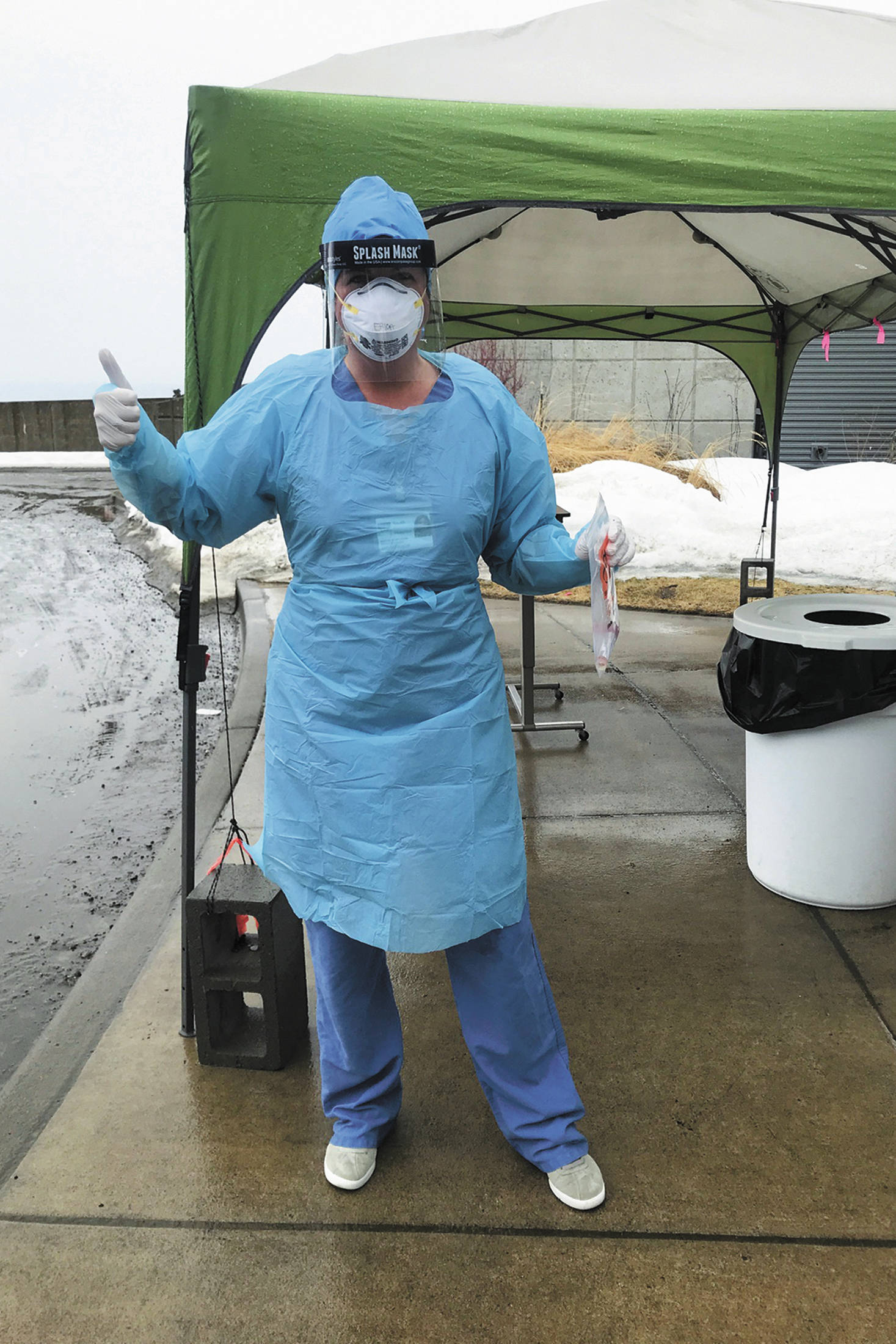As a public service to keep people informed on the COVID-19 pandemic, the paywall for all articles about the coronavirus has been disabled. If you are able, consider subscribing to the Homer News to support our continued work to bring important updates to the public. You can do so here.
As cases of COVID-19, the illness caused by the novel coronavirus, continue to grow across Alaska, the Homer area continues to prepare whilst only having one confirmed case within the community.
There are two cases of COVID-19 associated with Homer residents. In one of those two cases, the person was tested and isolated in Anchorage. The death of an Anchor Point man in his 30s has also been tied to the disease, but he died out of state.
Locally, South Peninsula Hospital had sent off 148 samples for testing as of Wednesday morning, according to hospital Public Information Officer Derotha Ferraro. Of those tests, 116 have come back negative so far and 31 are pending. Tests are sent to either the state laboratory or the commercial lab Quest Diagnostics. The turnaround is three to four days, Ferraro told the Homer City Council during a COVID-19 unified command update given to the council at its Monday meeting.
Ferraro updated the council about the hospital’s new alternate testing site, which is being staged at the Homer Chamber of Commerce and Visitor Center. The hospital has already been in the process of constructing an alternate care site at Christian Community Church to accommodate future patients with COVID-19 in case there is overflow from the hospital.
Ferraro previously told the Homer News that the alternate testing site will start being used once the hospital’s current drive-through testing process reaches the threshold of processing 20 tests per day.
The criteria for testing for COVID-19 changed on April 10 and were made more broad in the state of Alaska.
“Testing is recommended for persons with cough, shortness of breath or difficulty breathing,” Ferraro told the council.
Now, however, testing is also being recommended for those with at least two of the following symptoms as well: chills, fatigue, diarrhea, headache, diminished sense of taste or smell, fever, body aches, runny nose, sore throat or phlegm.
“Due to the change in testing criteria, we do expect to see an increase in referral for testing,” Ferraro said.
That’s where the alternate test site at the chamber visitor center comes in. It will open only if needed.
South Peninsula Hospital has also received one of the 50 rapid testing machines produced by Abbott Laboratories that were secured by the state and then distributed. It came with just over 200 cartridges and arrived over the weekend, Ferraro wrote in an email. The sample swab is taken from a patient in the same way, but the machine can process the sample and provide results within minutes, she said.
One drawback to the rapid testing method, Ferraro explained, is that the machine from Abbott is not as sensitive as the testing methods at the state or commercial laboratories. That is, it requires more of a “viral load” than the other tests do in order to produce the same level of results.
“It is very accurate for positive results, but has a high level of false negatives,” Ferraro wrote. “It just isn’t as sensitive to the viral load in the swab.”
The hospital can trust a positive test result from an Abbott machine with 100% certainty, Ferraro wrote, but if the result is negative, it has to be double checked with the state. Any negative test produced through the rapid test machine must be sent to the state lab and processed there as well, Ferraro wrote.
“So this only speeds the return on high viral-load positives, which is very helpful in preventing further spread from that one person, but not helpful for the majority of persons being tested at this time,” she wrote. “This may change as the profile of the individuals change.”
In the update to the city council, Homer Public Health Nurse Lorne Carroll cautioned that, while social distancing and hunker down measures may appear to be flattening the curve of cases in Alaska, now is not the time to relax.
“COVID-19 is not going away anytime soon,” he said. “… One thing that’s been highlighted to me from a public health or a population-focused perspective is we’re entering into sustainability mode. And that means it’s a really different ballgame than it was a couple … weeks ago. You know, the public health nurses will continue to do index case investigations and contact tracings for every case, but that’s a little reactionary. And there’s a little bit of preventative measures in there for community health, but the community mitigation measures — those are just incredibly important and go hand-in-hand with the index case investigations and contact tracings.”
Carroll spoke of all the things he’s seen happening on the lower Kenai Peninsula, and around the state, to adapt to the pandemic situation — things like creating personal protective equipment for those who need it, changing the way people access food, and the way they access health care in order to better protect them.
“So I would just say in closing that, we’ve just begun, and we need to keep going,” he said.
Reach Megan Pacer at mpacer@homernews.com.


